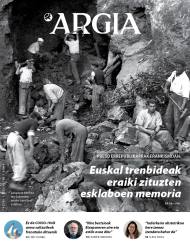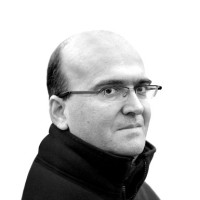Who can become a researcher?
I have read in the networks that the evaluation of university researchers has sparked a debate in Catalonia. The debate has, in any case, been small of those who wake up from time to time. It seems to me an obvious issue, because to access a job at university, or to access the academic career, the issue of accreditation agencies is a fundamental one. In short, in order to obtain space in the public university (take into account that research is carried out mainly in public universities), the curriculum of the research professor is evaluated by non-university agencies. Attention is not about achieving stable and well-paid employment, but rather about the fact that the evaluation of these agencies is also necessary in the “training” profiles. To advance in the academic career, it is also necessary to overcome a series of evaluations. It is a complex issue and has its best advantages insofar as its academic trajectory is somehow clarified and objected.
In recent decades, when the solid institutions of modernity are weakening, that is, in our increasingly neoliberal societies, characterized by deregulation, the social function of the university expert is being questioned more than before. However, this figure still has legitimacy to speak to the society of Truth, Science or Critical Thinking, among others. Therefore, taking into account who gets to these social positions and how it reaches is by no means a matter of corporativism or the working conditions of certain workers. On the contrary, I would say that this is an issue with a deeper social significance.
"Fortunately, compared to the rest of Europe, these turbocasitist logics of the trajectory of researchers are not so clear in our country, I would say. At least in some areas. But the trends and pressures are those."
In the vast majority of cases, the researcher is at the same time a professor, since figures dedicated exclusively to research are minority, especially in the social sciences and humanities. In this sense, we mainly take into account the publications of scientific articles, journal articles that are increasingly owned by giant companies, or that appear in lists managed by themselves. Therefore, it is a great business to publish in this type of journals, especially research that provides public money, often without open access. This situation is reflected, moreover, in the development of a full scientific debate from these channels, and in the need to take it into account.
All this long process, however, has clear structural constraints that we cannot forget in the name of supposed excellence. Fortunately, compared to other European countries, these turbocasitist logics of the trajectory of researchers are not so clear in our country, I would say. At least in some areas. But the trends and pressures are those.
At this point, where is the research in Basque? Why should a researcher from Euskal Herria publish their works in Euskera (along with the fact of publishing them in other languages, of course) so that they are less taken into account throughout this evaluation process? Political will and militant will probably be indispensable. However, in view of all this neoliberal logic of the commodification of research, it is also a brake to strengthen the field of research in Euskera. In this sense, I believe it is fundamental that the institutions and standards that evaluate the research be decided in the Basque Country itself, in the direction of the construction of a new logic of research. Sovereignty is also essential to this end.
Bidali zure iritzi artikuluak iritzia@argia.eus helbide elektronikora
ARGIAk ez du zertan bat etorri artikuluen edukiarekin. Idatzien gehienezko luzera 4.500 karakterekoa da (espazioak barne). Idazkera aldetik gutxieneko zuzentasun bat beharrezkoa da: batetik, ARGIAk ezin du hartu zuzenketa sakona egiteko lanik; bestetik, egitekotan edukia nahi gabe aldatzeko arriskua dago. ARGIAk azaleko zuzenketak edo moldaketak egingo dizkie artikuluei, behar izanez gero.
Today, the voices of women and children remain within a culture that delegitimizes their voices, silencing their experiences, within a system aimed at minimizing or ignoring their basic rights and needs. A media example of this problem is the case of Juana Rivas, but her story... [+]
On Tuesday, the sentence was released against five young people from Lapurdi, convicted of belonging to Segi. Fifteen months in prison for reversal to two young people, with a fine of EUR 500 each; 140 hours of forced labour and EUR 500 fine to two other young people; and,... [+]
The other day, as I was walking through the famous television series The Wire, there came a scene that reminded me of despair. There, the management of the newspaper The Baltimore Sun brought together the workers and alerted them to the changes that are coming, i.e. redundancies... [+]
The consumerist culture we live in sends every user to an unreasonable enjoyment. As Slavoj Zize says, Enjoy your fetish, it has become the rude mandate of hypermodernity. Current enjoyment is carried out through existing technological devices to occupy the place of fetish. But... [+]
A ghost crosses the kitchens: The ghosts of Carlos.
Karlos has not been presented to the Master Chef Celebrity. After analyzing its culinary heritage, it is very clear that it will not overcome the selection of its opponents. In fact, the Academy of Gastronomy and the media... [+]
In 2018, I leveraged social media and most communications from devices to try to control where I focus on life. Every day I go on that task, in the light of the moth, because my curiosity is constantly looking for fresh information to help me understand reality. At that time I... [+]
Beyoncé at the break of an American football game in Houston, Texas. The American singer has come to the center of the stadium in a cowboy suit that she's had access to. The hat covers the nice, the legs the boots long to the knees. The scarce white suit shows her thighs and... [+]
The new Syrian president has withdrawn his hand to the chest of the German Foreign Minister, the minister, and denied him the handshake. Politely, Annalena Baerbock suffers contempt. Before that, the Syrian Al-Golani has reached out to the French Foreign Minister, Jean-Noel... [+]
The New Year’s Morning is the title of a roundness created by Joxe Ansorena, brother of our grandfather Isidro, for the Txistularis to hit the streets during the New Year’s Morning. In the air of that melody, we were picking up the wrecks of the night, like the garbage... [+]
We were yelling, “New Year, what brings us?”, around the first night of the year, at the preemies who crossed the road. Waiting for the foals, drunks, us. And as there was no runner or selfie yet, we would find most of the Russians who had gone out to put down the excesses... [+]
Donald Trump will take office again on January 20 and will resume office as President of the United States. If, in the previous mandate, 2017-2021, he was not shameful in decision-making, in this mandate he will remove those scarce complexes and do whatever he wants, as the... [+]
The achievement of the Euskadi Selection has undoubtedly been a historic achievement. But if you stick to that, for many Basques – I too, because I am Navarro – it will be the darkest and saddest day. After enjoying the joy and warmth of the first few days, let's go back to... [+]
Hearing and language teachers (PDI) and speech therapists are specialist teachers who work in both the public and the concerted school. Among its functions is the direct attention to students with language and communication difficulties, but also the establishment of incremental... [+]
The victims created by the IAP are not only functionalized teachers thanks to the stabilization process brought about by the IAP Law, but much more. Some have been given some media visibility as a result of Steilas's appeal, but most of them are invisible. All the victims of the... [+]


















